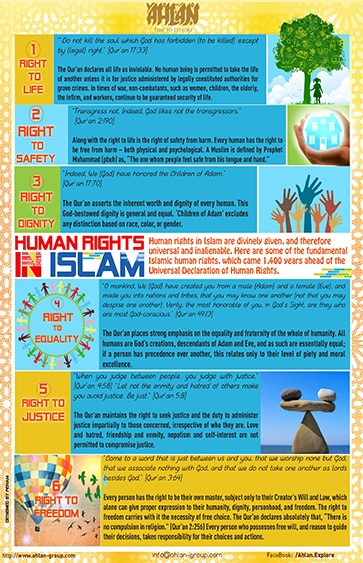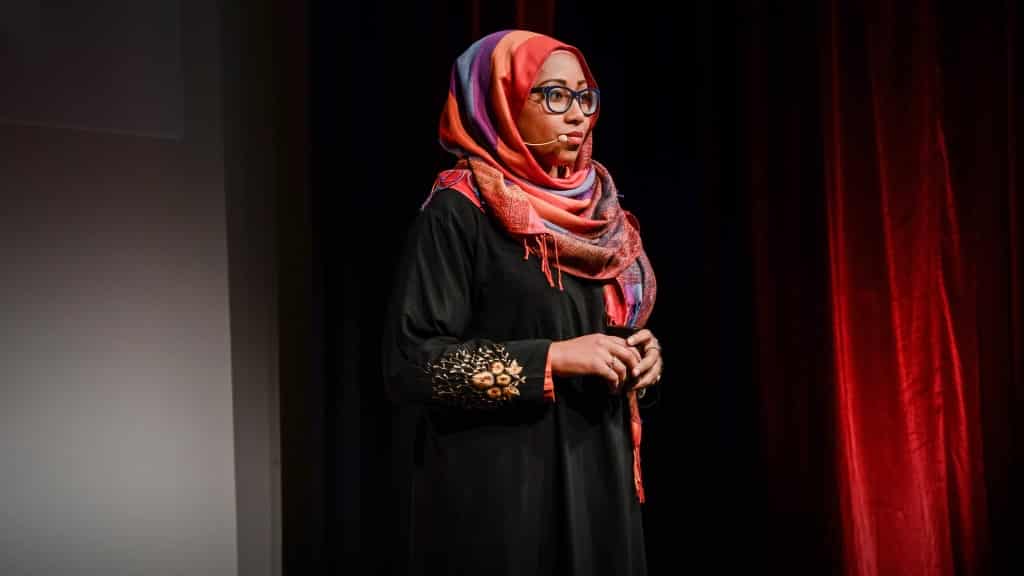The spread of Islam through trade played a significant role in introducing the religion to various regions. Muslim merchants established extensive trade networks that connected the Middle East with Africa, Asia, and Europe. Alongside goods, culture and religious beliefs were exchanged, contributing to the spread of Islam through trade. The fair business practices and ethical principles promoted by Islam attracted many people to the faith.
The Spread of Islam
The spread of Islam was rapid and influenced by various factors. Key reasons include its universal message, emphasizing equality among all people. Islam is known for being an easy-to-follow religion, consistent with human nature, reason, and logic. It embodies high moral standards and lofty values, making it evident to those who study it that Islam is not a human invention but a divine religion. Additionally, the Islamic economy and trade played a significant role in spreading Islam further.
How Did Trade Spread Islam?
Trade was instrumental in the dissemination of Islam, as Muslim merchants established extensive networks connecting the Middle East with Africa, Asia, and Europe. These trade routes not only facilitated the exchange of goods but also allowed for the sharing of cultural and religious ideas.
The ethical practices mandated by Islam attracted many to the faith, as merchants exemplified fair dealings and honesty, creating a reputation that drew people to their teachings.
Moreover, Islamic principles of commerce, emphasizing lawful transactions, honesty, and fairness, resonated with diverse populations. Muslim merchants often built trust through their integrity, fostering relationships that led to the conversion of many.
Merchants’ engagement in local communities, combined with the establishment of educational initiatives, helped to spread Islamic beliefs and practices, transforming social and religious landscapes along their trade routes.
Let’s break all of these points down to see the spread of Islam through trade:
What Is The Islamic Way Of Trade?
The basic principle in transactions, including buying and selling (trade), is permissibility, and trade is considered a good form of earning that Islam has permitted.
Trading in Islam is based on the principles of the Quran and Hadith, emphasizing ethical behavior.
Some of the important aspects of such trade are:
1. Trade Must Be In Lawful Things (Halal) And Not In Unlawful Things (Haram).
Halal and Haram Goods and Services-Islamic trade involves those items that are permissible under Islamic law, known as Sharia. It includes goods, which are useful, not harmful, and acceptable, They are many and numerous, and a few have been forbidden, such as:
Alcohol, pork, and any merchandise related to vise. Also trades in gambling or trafficking of labor are avoided. Usury trading (Riba) is one of the greatest prohibitions in Islam, based on social injustice, which is represented by enriching one party and impoverishing the other party.
Allah said in the holy Quran “He commands them to do good and forbids them from evil, permits for them what is lawful and forbids to them what is impure”. al-araf/157

2. Fair Dealing And The Merchants Must Not Be A Traitor Or A Cheat
Honesty must be present in trade, the merchants are required to give true information about the products regarding defects or shortfalls they may have. False advertisement is also not allowed.
God Almighty has condemned cheating and its people in the Qur’an and threatened them with woe, saying:
“Woe to the defrauders! Those who take full measure ˹when they buy˺ from people, but give less when they measure or weigh for buyers.” (Al-Mutaffifin: 1-3).
Accurate measurement and upright weighing is encouraged. The use of false weights is treated as a major sin. Whoever does that is a cheater and a traitor as the Prophet Muhamed said: “He who cheats is not one of us.”
3. Satisfaction Between The Dealers And Clarity Of The Dealing
Islam is based on the principle of consent in transactions and trade between people. Therefore, the principle of consent must be present between the parties to the transaction, and no one may be forced to deal.
Allah said in the Quran “O believers! Do not devour one another’s wealth illegally, but rather trade by mutual consent.” nisa/29
The dealings between the two parties must be completely clear and not hide anything defective in the product sold by the merchant.
The Prophet Muhamed said: “A Muslim is a brother to another Muslim, and it is not permissible for a Muslim to sell something to his brother that has a defect unless he explains it to him.” [Ibn Majah: 2246]
4. The Merchants Must Not Monopolize The Goods
The definition of monopoly in trade is that merchants withhold a commodity when it is scarce and people need it so that the price rises and becomes expensive.
Islam has forbidden monopoly because it restricts people. The Prophet Muhamed said: “Only a sinner monopolized”. [Muslim: 1605]
5. The Merchants Should Not Swear Falsely
The merchants should not swear falsely but rather avoid swearing even if he is truthful as much as possible.
The Prophet Muhamed called a false oath a plunging oath, meaning that it immerses its owner in sin in this world and in the Fire in the Hereafter, and Allah will not look at its owner on the Day of Resurrection.
Allah said: “Do not use Allah’s Name in your oaths as an excuse for not doing good, not guarding against evil, or not making peace between people. And Allah is All-Hearing, All-Knowing. Do not use Allah’s Name in your oaths as an excuse for not doing good, not guarding against evil, or not making peace between people. And Allah is All-Hearing, All-Knowing. al-baqarah/224-225
6. The Merchants Should Not Raise The Prices Of Goods
Such as exploiting the Muslims’ need for the commodity and raising its price on them; to gain exorbitant profits more than is permissible.
Raising prices on Muslims is considered a crime and sin that is why the prophet Muhamed said “Whoever interferes in the prices of Muslims to make it high for them, it is a right upon Allah to seat him with a bone of fire on the Day of Resurrection.”
This ruling does not only apply to Muslims but also to non-Muslims.
The Muslim’s treatment of the non-Muslim, if the latter is not among the people of war, must be based on justice and righteousness, as God Almighty said:
“Allah does not forbid you from dealing kindly and fairly with those who have neither fought nor driven you out of your homes. Surely Allah loves those who are fair.” al-mumtahanah/8
7. The Merchant Must Pay Zakat
A merchant who wants to please his Lord should be careful to pay zakat on his money. (Zakat, for those who do not know it, is a charity imposed by God Almighty on Muslims, which they pay from their money annually, and it is paid to the poor, the weak, and the deserving.)
He should evaluate his merchandise every year and pay zakat on it at a rate of a quarter of a tenth, i.e. 2.5%. This includes liquid money and commercial goods whose value is known. As for fixed things such as buildings, equipment, etc., these things are not included in the calculation of zakat. Rather, what is included in it are cash and traded goods prepared for sale. As for the debts he owes, he deducts them and calculates them from the amount on which he will pay zakat.
There are many Quranic verses in this regard, but we will suffice with mentioning this verse:
“Establish prayer, and pay alms-tax. Whatever good you send forth for yourselves, you will ˹certainly˺ find ˹its reward˺ with Allah. Surely Allah is All-Seeing of what you do.” al-baqarah/110
8. The Trading Must Not Distract The Trader From His Religious Duties.
A Muslim merchant must not let his business or trading distract him from his religious duties, from the remembrance of God, from prayer, and other acts of worship.
The issue of earning is an important and legitimate issue in Islam. Obtaining money to spend on oneself and meet one’s needs is a legitimate requirement and Islam urges this.
It is not a purely worldly issue. Earning money to spend on oneself and meet one’s needs is linked to reward and recompense in the afterlife. It is not a purely worldly issue. Islam urges earning, working, and trading, but on the condition that this trade or work does not distract from the remembrance of God.
Allah said “by men who are not distracted—either by buying or selling—from Allah’s remembrance, or performing prayer, or paying alms-tax. They fear a Day when hearts and eyes will tremble.” an-nur/37
Overall, The merchant whose business does not distract him from his religious duties, who pays zakat on his wealth, who adheres to the limits of Allah, the Most High, and who does not have greed that would lead him to monopolize the commodity or raise prices for Muslims, or cheat or swear falsely, or deal in the sale of forbidden things. . The merchant who adheres to the limits of Allah and does not deviate from them will be with the truthful and the martyrs on the Day of Resurrection.
Hence the Prophet Muhamed said: “The truthful merchant will be with the prophets, the truthful and the martyrs.”
How Might The Spread Of Islam Have Contributed To Muslim Success In Trade?
Islam came to express its methodology, as God Almighty said in the Holy Quran: “There is no compulsion in religion,” al-baqarah/256

The Islamic religion is the religion of logic and reason, and it is not spread by violence or force, but rather by dialogue, wisdom, persuasion, and useful debate that builds and does not destroy. The Holy Quran has stated this in His Almighty saying:
“Invite all to the way of your Lord with wisdom and kind advice, and only debate with them in the best manner. Surely your Lord ˹alone˺ knows best who has strayed from His Way and who is rightly guided..” an-nahl/125
1. Islamic Trade Is Based on Islamic law
Trade was linked to policies and laws derived from Islamic law concerned with controlling and enforcing the rules of people’s financial transactions, and its concern with clarifying the details of performing their religious rituals.
This provided an effective and advanced structure and a fair, free and motivating environment for the Islamic trade movement that led the global commercial and economic scene for about nine centuries.
2. Islamic teachings For Trade facilitated the success of Muslim traders
Shared values, strategic geographic advantage, legal frameworks, and cultural exchange enabled the spread of Islam and therefore created an enabling environment that facilitated trade.
These elements thus combined to facilitate the success and reach of Muslim traders, leaving behind a legacy of economic prosperity for many centuries.
After the spread of Islam and the geographical expansion, Muslim traders were able to establish long-term trade and increase economic activity.
3. Islamic commercial law established clear guidelines regarding trade practices
Also, the jurisprudence of transactions was established, which is an Islamic commercial law that established clear guidelines regarding trade practices, contracts and transactions and was organized in a distinctive way.
The establishment of the Islamic Caliphate also brought some political stability, which allowed for the practice of trade on a wider scale.
Due to the Muslim traders’ use of the customs and principles of Islamic law and what it calls for in terms of morality, honesty, not lying, not cheating, etc., it made them acceptable in different markets
How Did Arab Merchants Spread Islam?
Trade played a major role in the spread of Islam through merchants without coercion, and land and sea trade routes also contributed to the transmission of the call, the most famous of which was the Silk and Incense Roads that linked India with Europe and Asia and passed through many important cities.

1. Honesty and morals of Muslim Arab Merchants
The spread of Islam led to the elevation of morals and the change of religious and social conditions by embracing the Islamic religion and abandoning previous religions. Islam spread in many regions through dealing with trade, honesty and morals.
2. Reputations for fair trading and integrity
Many Arab merchants developed reputations for fair trading and integrity. Such credibility added further weight to the religious messages.
- These merchants were aware of the importance of applying the teachings of the Islamic religion in their trade so that what they earned would be free of all kinds of forbidden things;
- they never approached usury, and if they made an agreement with someone,
- they would never break it even if he received a greater profit.
The merchants of those countries preferred to deal with Muslim merchants because of their honesty and trustworthiness in dealing.

3. Merchants’ Quran And Arabic teaching circles
Some merchants combined trade and knowledge; they established Quran teaching circles. and through trading, Arabic was used, and through this, copies of Islamic texts were circulated.
It was through this that merchants who dealt in Arabic introduced religious themes and practices to the people who did not speak Arabic. Discussion about beliefs among most of the merchants led to telling stories about Prophet Muhammad and Islam teachings.
4. Muslim merchants Marriage Of Non-Arabs
Muslim merchants used to marry women from those areas as a result of their long stay there, which led to a cultural and social rapprochement that led many of them to convert to Islam.
Merchants began to open schools and teach the children of those areas and send their best students to study in prestigious academic centers.
Read also:
5. Non-Discriminating Merchants
Muslims did not distinguish between black and white or rich and poor, which was what the people of those areas, especially Africa, lacked as a result of the injustice and slavery they suffered before Islam reached them.

The missionary missions sent by Europe were condescending to the people there and treated them with condescension and mistreatment. Thus, we see the great role played by Muslim trade and merchants in spreading Islam and freeing some people from the injustice that was prevalent in those areas before Islam reached them.
The reason for this is due to simple matters, which is adherence to the teachings and principles of the true Islamic religion.
All of this played a prominent role in helping to spread Islam in the regions where the merchants settled.
Conclusion
Muslim merchants enjoy many qualities that are considered principles of the Islamic religion; we find honesty in dealing, not lying and cheating, trustworthiness, and staying away from all suspicious matters such as usury and others in our Islamic religion, as well as not breaching covenants and agreements.
The goal of Muslim merchants was not only profit, but they considered themselves bearers of the banner of the Islamic call; this is what led to the acceleration of the success of their call role.
The simplicity of the people in the continent of Africa and Asia and their discontent with the injustice that was prevalent before the arrival of Muslims to those regions; as they were treated like slaves and third-class citizens, so when Islam came, it equated white and black and rich and poor, so the people loved this religion and entered it in droves.
Muslim merchants competed to support the call with all their materials and other energies, so we find that they opened educational centers.
The great role played by Muslim merchants in spreading Islam in the continents of Asia and Africa and some countries, through many means reflected the extent of these merchants’ commitment to the principles of the true Islamic religion, which the inhabitants of those regions saw as their true savior from the misery and injustice in which they lived.
Curious to learn more about Islam and the compelling reasons why it is the fastest-growing religion in the world? Join our newsletter for insights and related topics!
















